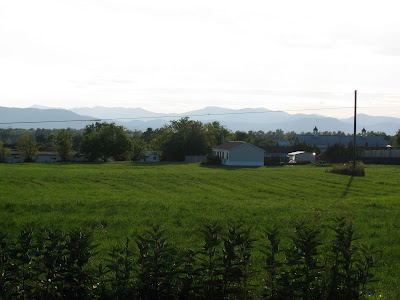The plan for my reinvention was to develop a portfolio of
activities in which I could contribute time and expertise, or in which I could
learn and grow personally. The
past couple of weeks following my NOLS/WMI experience have given an early (and
incomplete) illustration of what this may eventually look like. Here is what I have been up to (not,
thankfully, minute by minute)
My work in the IRB (Chair of the Committee on Human Research
in the Behavioral Science) has been predictably interesting and varied. This
week included our monthly committee meeting as well as several expedited
protocol reviews. The IRB is
taking more time than I initially thought likely, but I can now devote more
time and thought to my reviews than previously. Perhaps I am deluding myself, but I like to think that I am
not acting as a barrier to, but rather as a facilitator of the protocols that I
review. My recommendations need to
address the human subject concerns, but I try to also make suggestions on how to
do this and still accomplish the work efficiently. In certain circumstances, we have been able to remove
obstacles (deleting HIPAA authorizations, or suggesting short form consents). Next week, I begin meeting with
individual researchers at their request to discuss general IRB issues,
something that I had envisioned once I had more time. Should be fun and interesting. I’ll get to practice some listening skills.
Though I am no longer a board member of the Vermont Tobacco
Evaluation Review Board, I still chair its evaluation subcommittee. This past Friday we had an interesting
meeting for which (at least on this occasion) I was well prepared. We are working on analyzing the 2010 VT
adult tobacco survey, preparing an RFP for the next independent evaluator
contract, and making some decisions on denominator issues for outcome
evaluations for the cessation services.
All of this makes use of my MPH training and keeps me connected with the
tobacco control community.
That same Friday, I drove to Portsmouth NH to attend the
American Lung Association of New England board meeting (I am a board
representative from Vermont). This
charter is exceptionally well staffed and run, and the people on the board are
quite an interesting group, and the discussions significant: merger with New
York, transforming the data tracking software for volunteers.
In between, I am trying to learn French using Rosetta Stone
for our trip next June to the Dordogne to canoe the rivers and see cave paintings, reading (and listening) to some interesting
books, and doing more of the cooking and cleaning. Even did a stint answering phones for our public radio station pledge drive. And yes, I am having fun as well, taking a high school
friend sailing and taking other opportunities to be on our boat. Alas, the boat
was put up for the winter this past weekend.
Despite this assortment of activity, I am early in the
discovery phase of my reinvention.
And this is now on hold as we visit Jordan and Ariel at Stanford (the
excuse is my 35th reunion). When I get back I need to explore how I take my WMI
training further, research websites (eg, www.giving2.com) for other ways to
give my time, AND (more prosaic) clean my desk.









